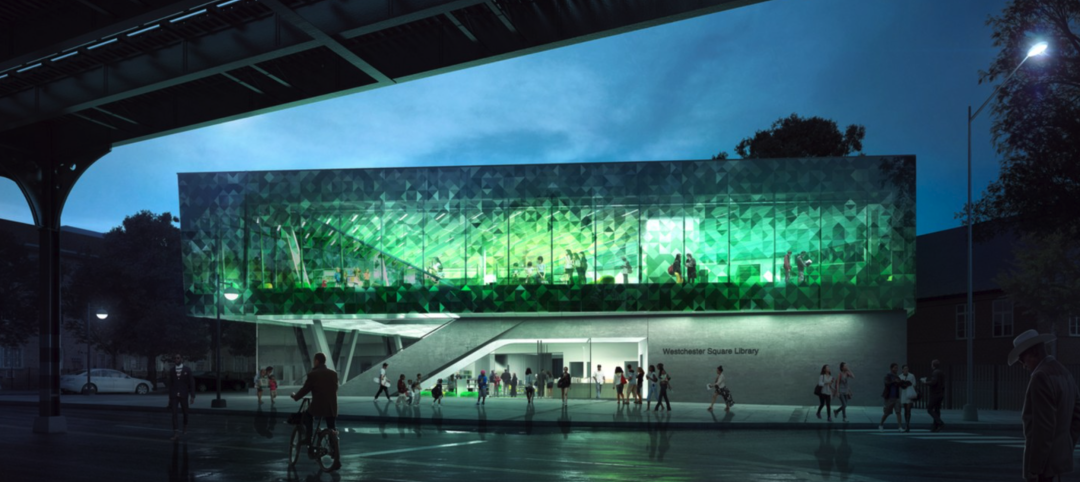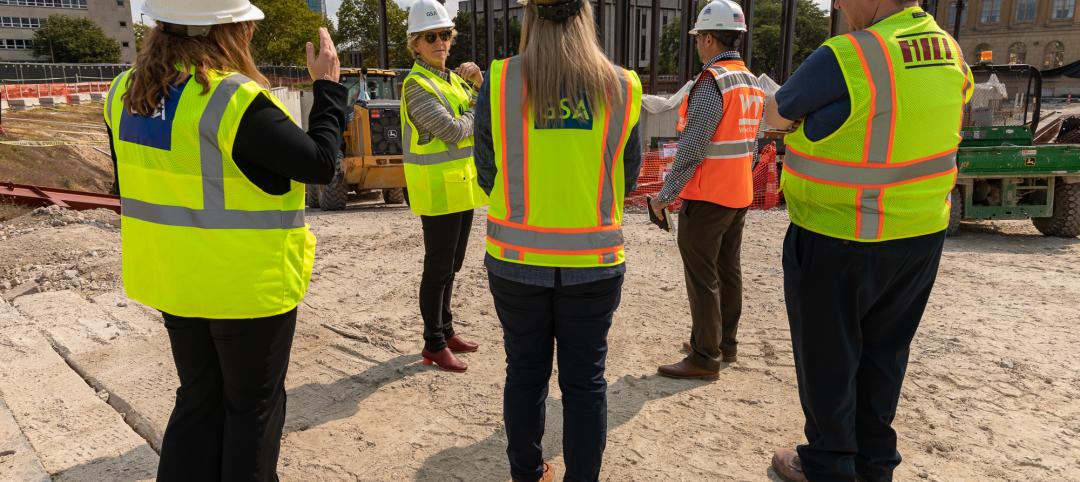Most people have created something out of Lego blocks at some point in their life, be it something small and simple like a Lego cottage, or large and complicated like Han Solo’s Millennium Falcon. At the very least, you have probably felt the wrath of one of your kid’s stray blocks, stepping on it as you walked barefoot through the house at midnight.
Regardless, Legos are typically thought of as toys or hobbies, but Adam Reed Tucker, a former architect whose business was decimated by the poor economy, is creating architectural mirabilia out of these colorful plastic blocks worthy of their own exhibit at one of the top museums in the country.
As The Chicago Tribune reports, Tucker has an estimated 9 million Lego bricks at his Chicago-area home that he uses to build his displays. His first creation was the product of a day sitting in Barnes & Noble thinking about what he wanted to do with his life after his firm closed. He wanted to work with his hands, and remembered he was good at making models as an architecture student.
His next stop was Toys R Us, where he purchased a Hogwarts Lego set and used the provided pieces to make a replica of Frank Lloyd Wright’s Fallingwater. These smaller projects grew into larger ones, such as an 8-foot-tall model of One World Trade Center (with one side left exposed to show how the building was made and why it collapsed), until, eventually, he was using tens of thousands of Lego blocks on one project alone.
Currently, Tucker has 13 pieces - and 310,000 blocks - on display at the Museum of Science and Industry as part of his “Brick by Brick” exhibit. Each piece in the exhibit shares the common theme of being an architectural wonder, such as a 60-foot-long replica of the Golden Gate Bridge created from an estimated 64,500 bricks, a Roman coliseum constructed of 22,500 bricks and shown in a cutaway to expose its manner of construction, and a Hoover Dam meant to mimic its appearance in old black and white photos.
Tucker has three more exhibits planned; one that focuses on the story of the industrial revolution, one focused on the work of Frank Lloyd Wright, and one that puts Walt Disney’s work on center stage.
Click here to view images from the “Brick by Brick” exhibit.
Related Stories
Architects | May 23, 2023
DEI initiatives at KAI Enterprises, with Michael Kennedy, Jr. and Gyasi Haynes
Michael Kennedy, Jr. and Gyasi Haynes of KAI Enterprises, St. Louis, describe their firm's effort to create a culture of diversity, equity, and inclusion—and how their own experiences as black men in the design and construction industry shaped that initiative.
Multifamily Housing | May 23, 2023
One out of three office buildings in largest U.S. cities are suitable for residential conversion
Roughly one in three office buildings in the largest U.S. cities are well suited to be converted to multifamily residential properties, according to a study by global real estate firm Avison Young. Some 6,206 buildings across 10 U.S. cities present viable opportunities for conversion to residential use.
Architects | May 23, 2023
Ware Malcomb hires Francisco Perez-Azua as Director, Interior Architecture & Design, in its Miami office
Ware Malcomb hires Francisco Perez-Azua as Director, Interior Architecture & Design, in its Miami office.
K-12 Schools | May 22, 2023
The revival of single-building K-12 schools
Schools that combine grades PK through 12 are suddenly not so uncommon. Education sector experts explain why.
Architects | May 19, 2023
Snøhetta architects make a bid to unionize the firm's New York studio
Employees at the New York office of architecture firm Snøhetta have filed a petition with the National Labor Relations Board (NLRB) to unionize the studio. Snøhetta employees’ action marks the third time architects at a private-sector architecture studio in the U.S. took that step.
Healthcare Facilities | May 19, 2023
A new behavioral health facility in California targets net zero energy
Shortly before Mental Health Awareness Month in May, development and construction firm Skanska announced the topping out of California’s first behavioral health facility—and the largest in the nation—to target net zero energy. Located in Redwood City, San Mateo County, Calif., the 77,610-sf Cordilleras Health System Replacement Project is slated for completion in late 2024.
Government Buildings | May 18, 2023
GSA launches first biennial construction award program
Today, the U.S. General Services Administration (GSA) announced the new biennial GSA Construction Award program, which is seeking submissions this summer. The program was created to honor outstanding achievements in construction, with a focus on quality and craftsmanship, collaboration and team dynamics, sustainability, innovation, and technology. The first Construction Awards ceremony will take place in 2024.
K-12 Schools | May 17, 2023
Designing K-12 schools for students and safety
While bullying, mental health, and other acts of violence are all too common in schools today, designers have shown that smart and subtle preventive steps can make a big difference. Clark Nexsen’s Becky Brady shares how prevention and taking action at the design level can create safe and engaging learning environments.
Affordable Housing | May 17, 2023
Affordable housing advocates push for community-owned homes over investment properties
Panelists participating in a recent webinar hosted by the Urban Institute discussed various actions that could help alleviate the nation’s affordable housing crisis. Among the possible remedies: inclusionary zoning policies, various reforms to increase local affordable housing stock, and fees on new development to offset the impact on public infrastructure.
University Buildings | May 17, 2023
New UC Irvine health sciences building supports aim to become national model for integrative health
The new College of Health Sciences Building and Nursing & Health Sciences Hall at the University of California Irvine supports the institution’s goal of becoming a national model for integrative health. The new 211,660-sf facility houses nursing, medical doctorate, pharmacy, philosophy, and public health programs in a single building.

















